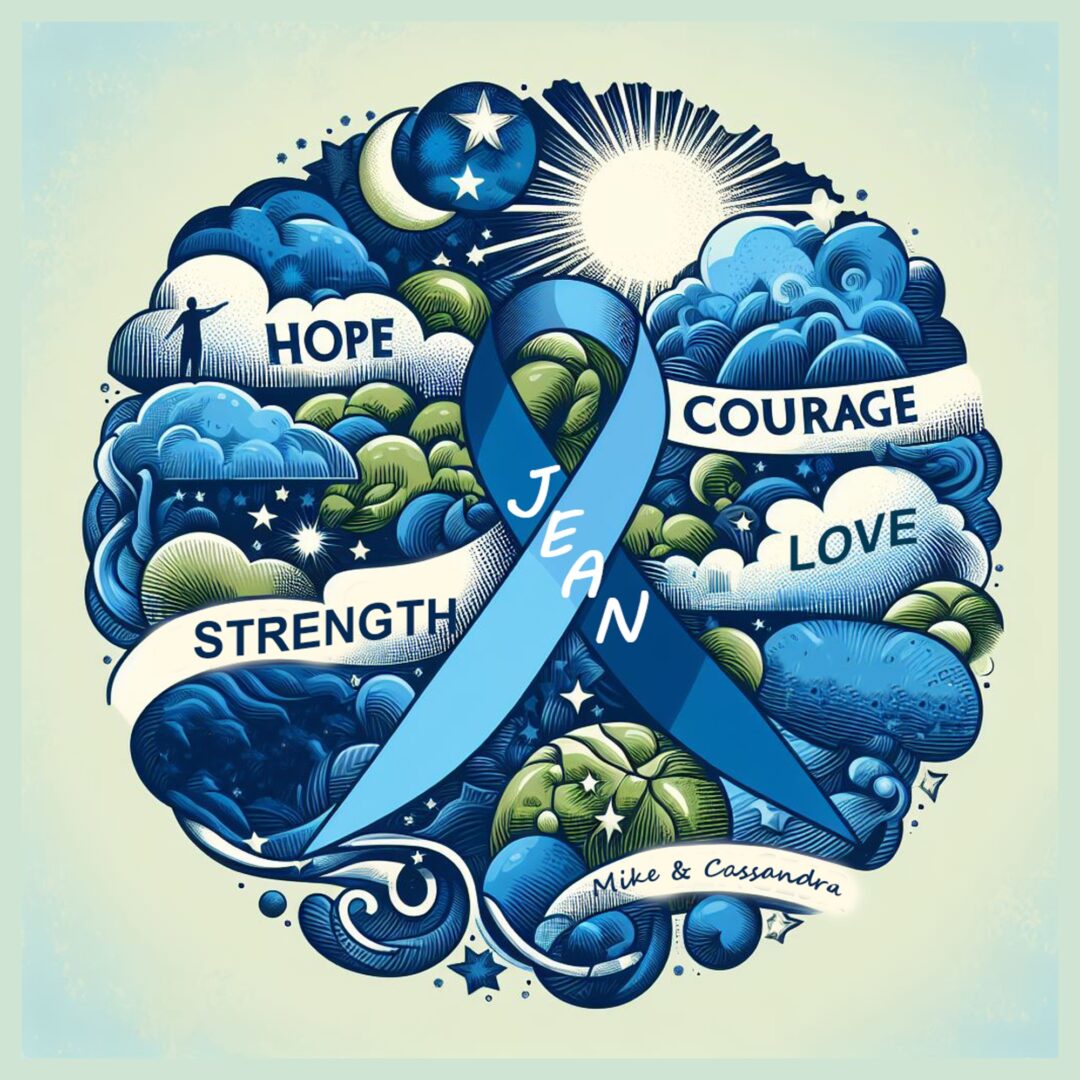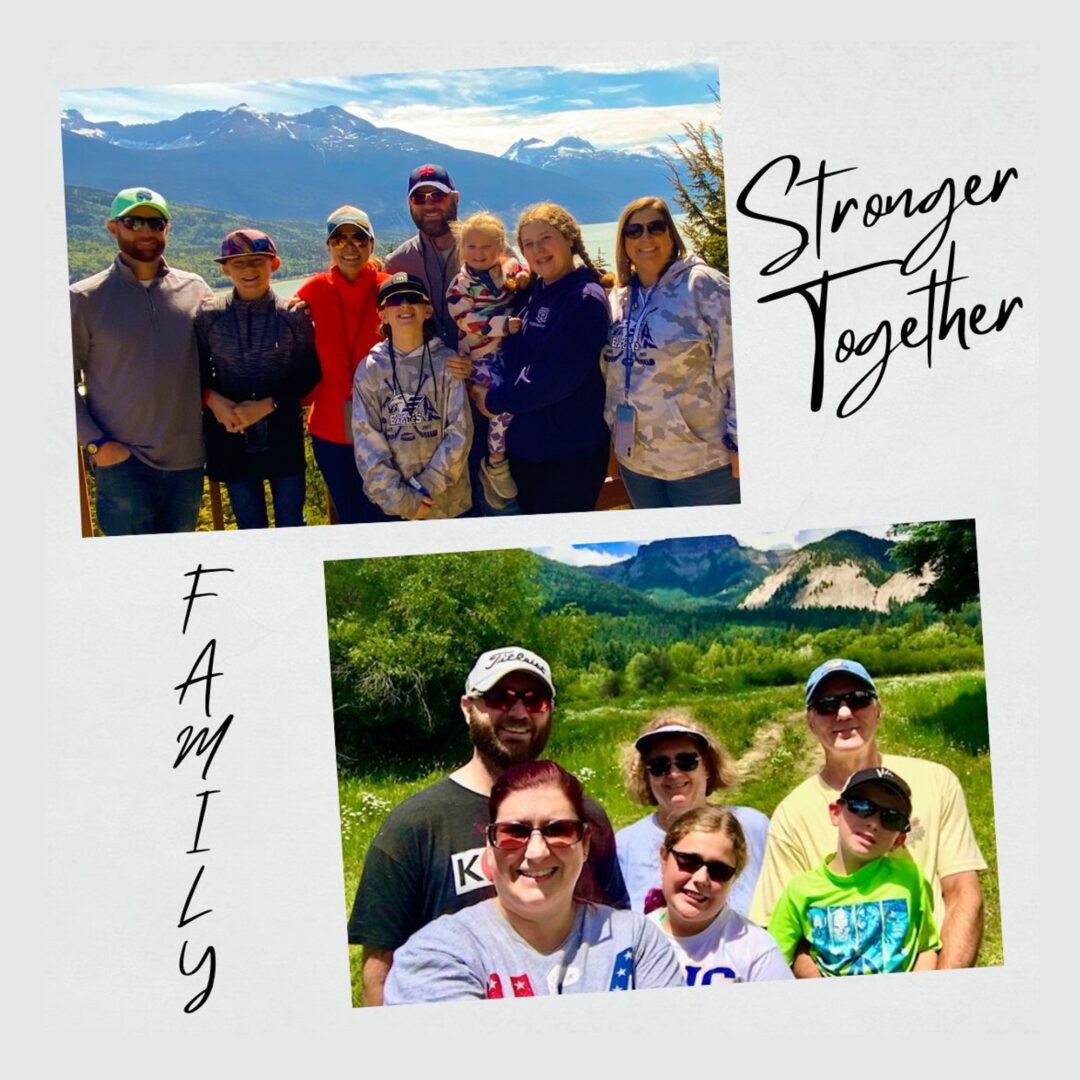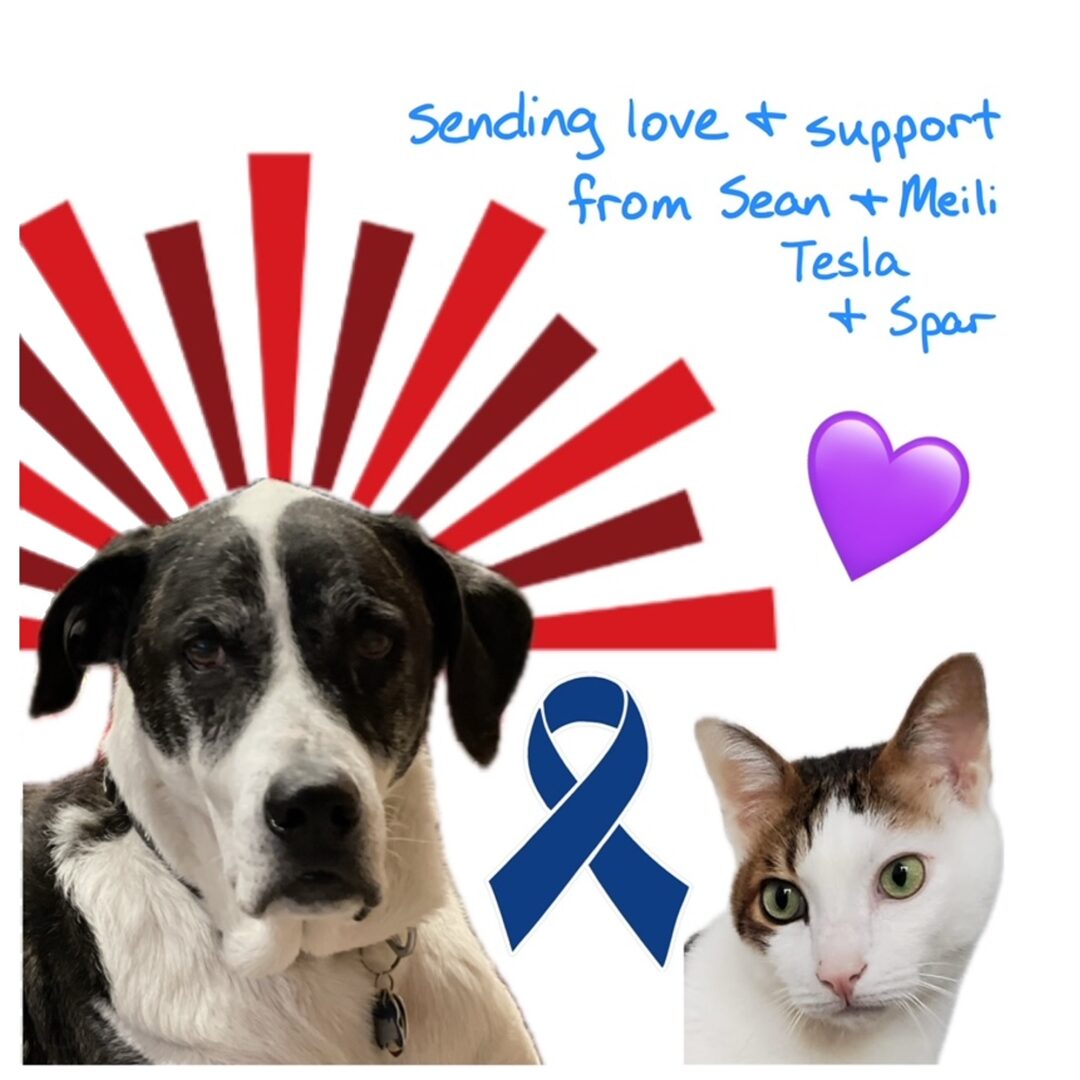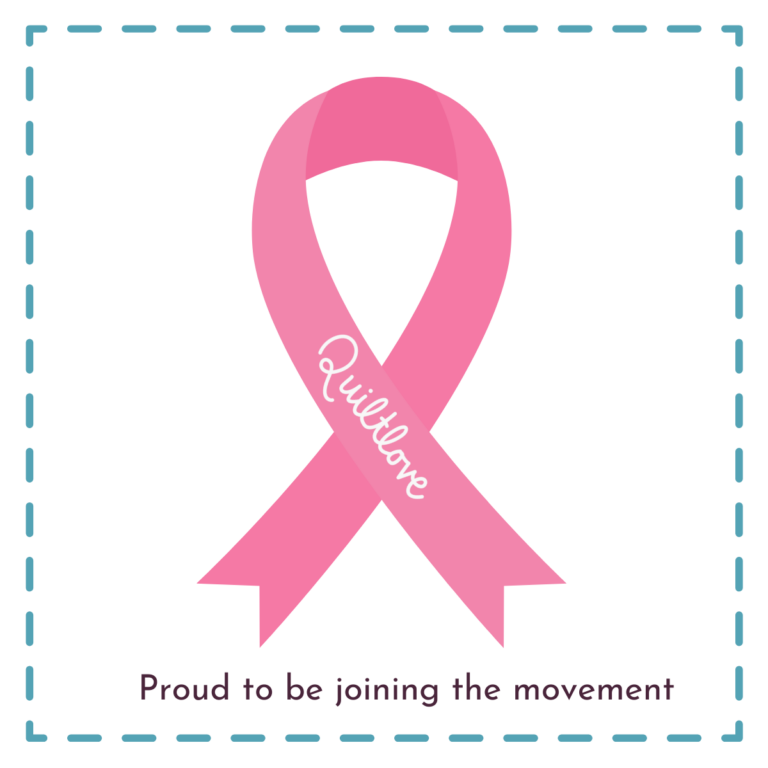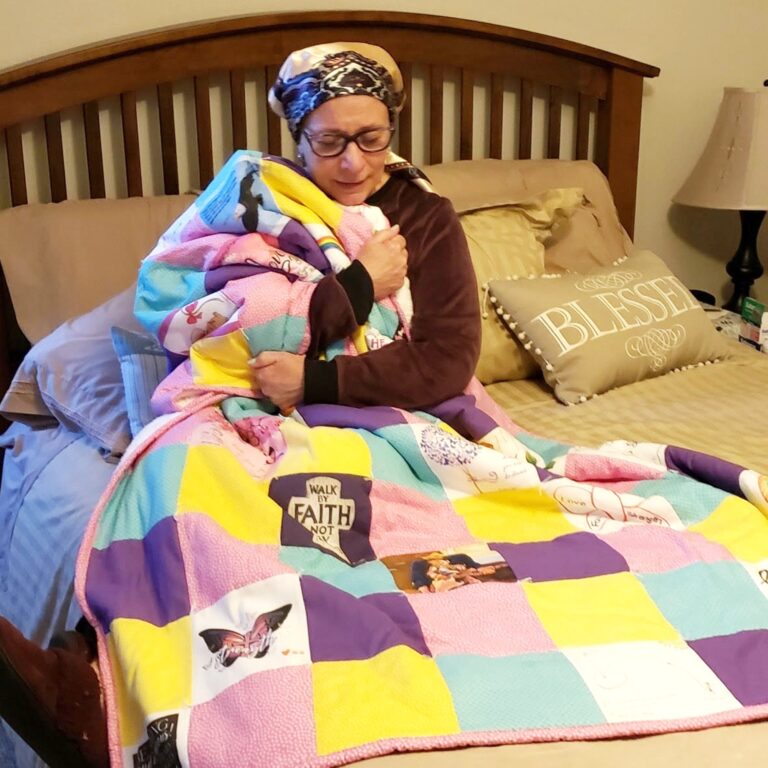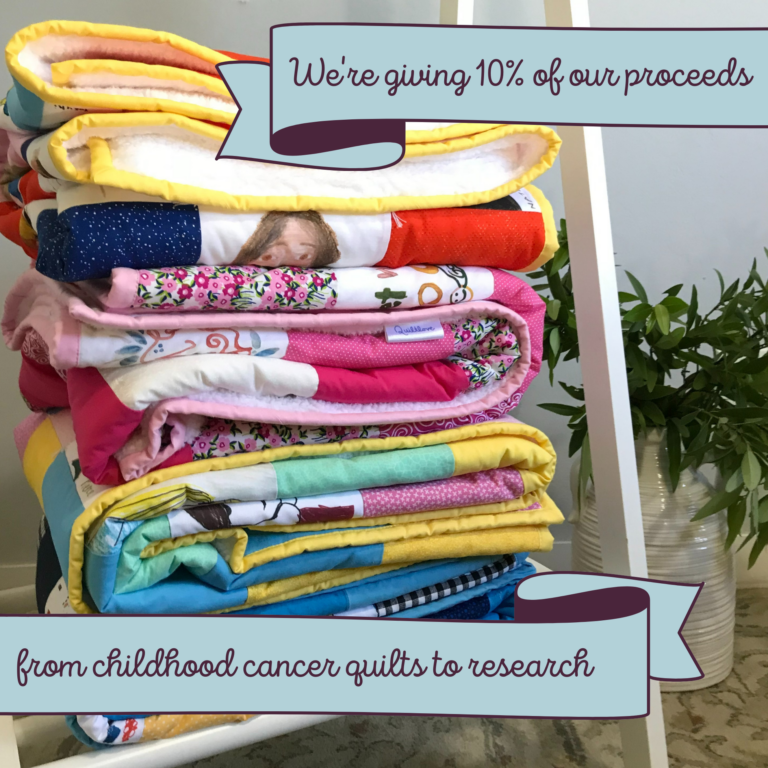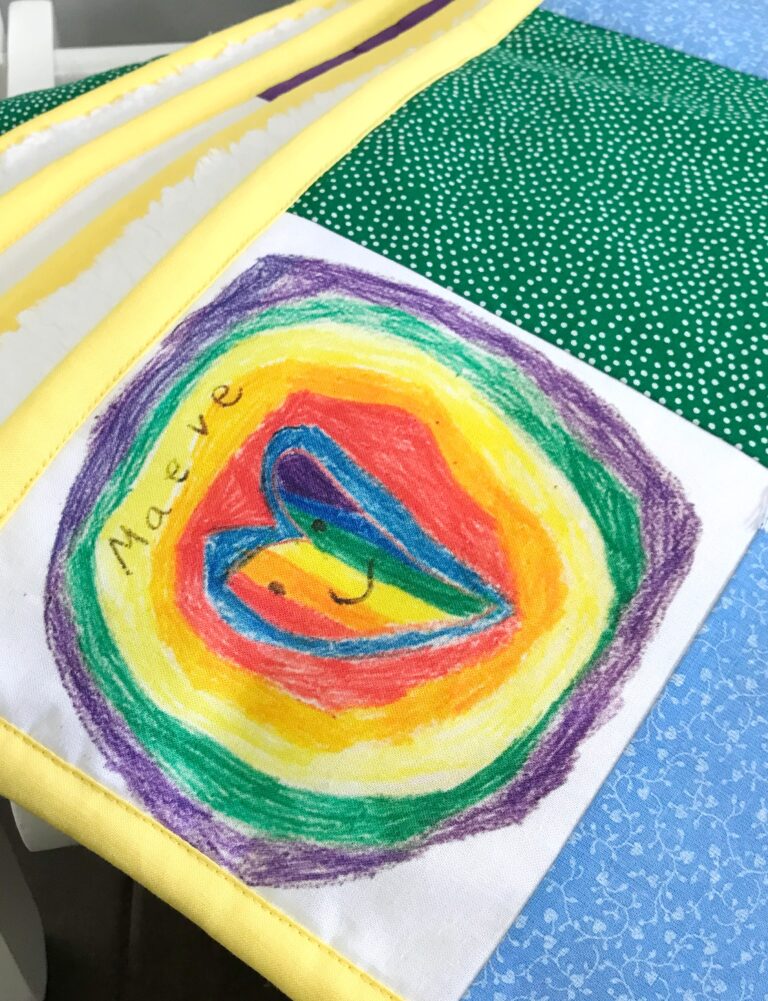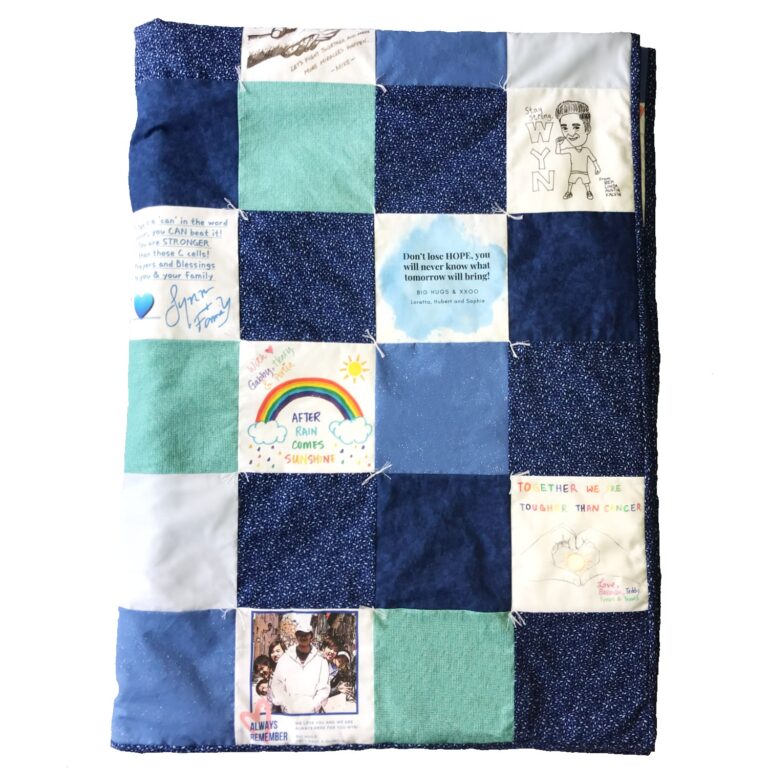As Colon Cancer Awareness month draws to a close, I’m sharing ideas for how to support a loved one with colon cancer, or more broadly, colorectal cancer.
First, a bit about language, before getting into the details. Colorectal cancer occurs in the large intestine, and is named based on where it starts, the colon or the rectum. The colon comprises the majority of the large intestine. The rectum is the last six inches of the digestive system. Because colon and rectal cancer share many characteristics, they are commonly grouped together under the name colorectal cancer. For this post, I am considering colon and rectal cancer patients collectively.
Six areas of support for colorectal cancer patients
When thinking about how to support a loved one facing colorectal cancer, or any difficult life event, a natural first step is to consider their needs. How has life changed for them? Where are they struggling? How can you ease their burden or brighten their days?
While you can always ask how you can help, someone facing something as serious and complex as a colorectal cancer diagnosis may be unsure how to respond. They may not want to put you out, or feel embarrassed to ask for help. They may not even know how to articulate their needs themself, or otherwise struggle to answer this question. With that in mind, I’ve done a little detective work…
The National Institute of Health identifies six categories of needs for someone facing colorectal cancer. They are:
All of these need areas are important, and in my opinion, there is no “best” way to support a loved one with colon cancer or rectal cancer. Rather, how we show support depends on our relationship with the person, the resources available to us, our interests and expertise, and other factors. In the following paragraphs I’ve laid out ideas for helping with each need area, should any of them be a fit for you.
Informational needs
A colorectal cancer diagnosis changes an individual’s life forever. To navigate the new normal, they will endure a deluge of valuable information. Education will cover their recommended diet, physical activity and lifestyle changes, based on their diagnosis and cancer type. They will learn medical information about symptoms, their treatment plan, drugs and supplements they will be taking, side effects from treatment, and more. Furthermore, they need to understand what their future might look like in terms of the risk of risk of recurrence, metastasis and the possibility of follow-on treatment.
A patient’s informational needs are best met by their doctor and care team. Friends and family members can support this important — and at times dizzying — need by also getting educated about what their new normal looks like. In particular, it can be helpful to know about changes to diet, physical activity and lifestyle, as this may impact your time spent together. By learning alongside your loved one, you are showing you care and that they are not facing this disease alone.
Psychological needs
Many colorectal cancer patients develop new psychological and emotional needs, given the serious nature of their diagnosis. This is a good area in which friends and family members can provide support, as it requires personal connection, rather than specific expertise. One simple way to support this need is to simply check in with them regularly and be a good listener. How are they feeling? What are their fears? What makes them hopeful? That said, providing emotional support is not limited to deep conversations. It can include other acts of support such as:
- Helping with household chores
- Helping with care tasks
- Preparing meals
- Supporting their new diet
- Giving gifts to let them know you’re thinking of them
Such actions, small as they may seem, demonstrate your support, which in turn can help meet a loved one’s emotional needs.
Social needs
A colorectal cancer diagnosis can be an isolating time due to medical appointments, fatigue, a compromised immune system, and other limitations. At the same time, the patient’s social needs are arguably more important than ever. For example, he or she may benefit from communicating with patients facing similar treatment plans, and/or joining a local colorectal cancer support group. In addition counseling may be helpful to assist with processing changes to one’s life. Last but not least, social support from family, friends, colleagues, neighbors and community members can help them feel connected and strong.
I recommend continuing to include them in activities (even if they can’t attend), and maintaining outreach, in the form of group text messages, calls and video chats to support social needs. In addition, one of the reasons I founded Quiltlove was to fulfill this need. A custom quilt with squares made by members of their support network can be a warm, physical reminder of everyone in their corner, even if they can’t be together.
Squares from loved ones for a colon cancer support quilt
Physical needs
As with every need area, physical needs will vary by person. That said, it can be helpful to understand if your loved one is experiencing gastrointestinal dysfunction, pain, neuropathy, fatigue or other physical limitations as a result of colorectal cancer. By asking them, or their caregiver, to inform you of any physical limitations you will better understand what they are going through. Their response will help guide you in the support you offer. In particular, this will allow you to thoughtfully plan how, where and when you spend time together.
Financial needs
The financial burden of a colorectal cancer diagnosis includes the direct costs of medicine, treatment and devices/appliances, which may or may not be covered by health insurance. In addition, the patient may incur indirect costs such as difficulty maintaining steady employment as a result of their diagnosis, and/or increased expenses for caretakers to complete household chores, care for children, prepare meals, etc.
Consider setting up a GoFundMe or similar page, should a loved one’s diagnosis present a financial need. If they are in a financially sound position, but this is a need that resonates with you, consider a donation in their honor to a nonprofit that supports others going through colorectal cancer. For example, the Colorectal Cancer Alliance has a fund that helps low-income individuals receive screening support and meet financial needs during treatment.
Spiritual needs
A life threatening diagnosis can bring a person’s religious and spiritual needs to the forefront. Depending on your relationship with the person, your own spiritual and religious beliefs and your area of expertise, you may or may not be able to provide direct support in this area.
If you connect at a religious or spiritual level, consider setting a standing chat schedule. In the event that you cannot, consider looking for ways to help them meet this need. This could include driving them to religious services, helping connect them with a spiritual leader with whom they are aligned, or helping them find a virtual option.
The key to preventing colorectal cancer is finding it early
No blog post on colorectal cancer would be complete without stressing that the CDC now recommends regular screening for colorectal cancer, beginning at age 45. Screening is used to detect polyps in the colon. If found, these polyps can be removed before they become cancerous. Screening also helps find colorectal cancer at an early stage, when treatment works best.
If you needed a nudge to go get that colonoscopy, consider this it!
Do you have tips for how to support a loved one with colon cancer or rectal cancer? If so, I would love to hear from you and add to this blog post.
As always, thanks for reading.
Warmly,

